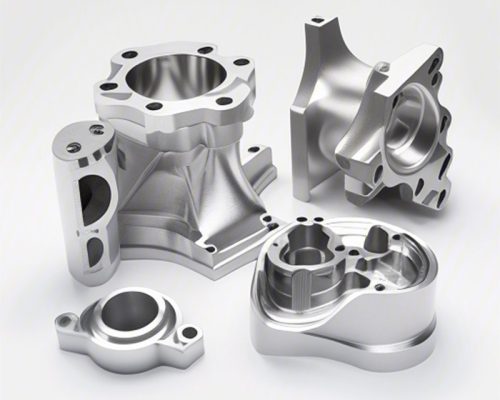Introduction
In the ever-evolving landscape of manufacturing, CNC (Computer Numerical Control) machining stands as a cornerstone of modern production technology. With its capacity for producing high precision components, CNC machining has revolutionized industries ranging from aerospace to healthcare. Understanding how these precision components benefit various sectors is crucial for businesses seeking to maintain a competitive edge.
What Are High Precision Components?
High precision components refer to parts that are manufactured with extremely tight tolerances and superior dimensional accuracy. These components are essential in applications where even the slightest deviation can lead to performance failures. CNC machining gives manufacturers the ability to produce parts that meet these stringent requirements consistently.
The Technical Detail
In practical terms, high precision components are often measured in microns (one-millionth of a meter). CNC machining techniques such as milling, turning, and grinding are pivotal in achieving this level of precision. For instance, CNC milling employs rotating tools to remove material from a workpiece, allowing for complex geometries and intricate designs.
The Role of CNC Machining in Achieving High Precision
Automation and Consistency
One of the biggest advantages of CNC machining is its automated nature. Unlike traditional machining methods, where human labor can introduce variables, CNC machining ensures consistent output by utilizing programmed commands. This reduces the risk of human error and significantly enhances production reliability.
Advanced Software and Technology
CNC machines are paired with sophisticated software that enables manufacturers to simulate machining processes before any physical work occurs. This predictive capability allows businesses to spot potential issues early, which is essential in high precision requirements. Technologies such as CAD (Computer-Aided Design) and CAM (Computer-Aided Manufacturing) work together to produce high fidelity designs and seamless process flows.
Industry Applications of High Precision Components
Aerospace
In the aerospace industry, where safety is paramount, high precision components are crucial for aircraft performance and reliability. Components such as turbine blades and landing gear assemblies must meet rigorous regulatory standards. CNC machining enables the manufacture of these vital parts with unparalleled accuracy, enhancing the overall safety and efficiency of air travel.
Medical Devices
The medical sector also benefits immensely from high precision machining. Surgical instruments and implantable devices, such as stents and orthopedic implants, require exact dimensions to ensure proper functionality and patient safety. Here, CNC precision crafting can make a life-saving difference.
Automotive Manufacturing
In automotive manufacturing, the need for precision is equally critical. Components such as engine blocks, transmission parts, and suspension systems need to fit together flawlessly to ensure vehicle performance and safety. This is where CNC machining’s ability to create custom, high precision components comes into play.
Why Choose High Precision Components?
Improved Performance and Reliability
Investing in high precision components translates to improved performance and reliability across all applications. Precision machining reduces the likelihood of component failure—leading to less downtime and fewer maintenance costs.
Competitive Advantage
Companies utilizing high precision components gain a significant competitive edge. They can offer better quality products that meet stricter industry standards, ultimately attracting more discerning customers.
Case Studies: Success Stories in High Precision CNC Machining
Aerospace Example: Boeing
Boeing employs high precision CNC machining for the critical components of their aircraft. The ability to machine metal and composite parts to exact tolerances has not only led to safer planes but also reduced weight—contributing to fuel efficiency.
Medical Device Example: Medtronic
Medtronic relies on CNC-machined components for its cardiac devices. Precision in these products is vital to their functionality; any deviation could lead to severe consequences. The company’s use of CNC technology has allowed them to innovate while ensuring patient safety.
Automotive Example: Ford Motor Company
Ford has embraced high precision machining in the production of their vehicles, particularly in engine manufacturing. By utilizing CNC technology, they can ensure components fit perfectly, optimizing performance and durability.
The Future of High Precision CNC Machining
Emerging Technologies
Looking ahead, advancements like additive manufacturing and hybrid machining are likely to enhance CNC machining capabilities. These technologies will allow for even finer precision and more complex geometries, further expanding the applications of high precision components.
Sustainability Considerations
As industries seek to reduce their environmental footprint, the demand for efficient and sustainable production methods increases. High precision CNC machining can minimize waste and use fewer materials through exact production—leading to a greener manufacturing process.
Conclusion
High precision components are not just a luxury; they are a necessity in today’s competitive industrial landscape. From aerospace to medical and automotive applications, they serve as a backbone for quality and reliability. Understanding the essence of CNC machining and the benefits it brings is vital for businesses aiming to succeed in high-stakes environments. By investing in precision, companies not only guarantee better performance and safety but also position themselves at the forefront of innovation.
—
- This article aims to enlighten readers on the intricate balance of technology, engineering, and industry requirements in the world of CNC machining. By marrying technical details with real-world applications, we hope to inspire a deeper appreciation for the role that high precision components play in driving progress across diverse sectors.
By shedding light on these critical aspects, we aspire to empower businesses to make informed decisions in their CNC machining journey. If you’re looking to elevate your manufacturing capabilities and explore high precision solutions, consider reaching out to experienced CNC machining providers today for your bespoke needs!


